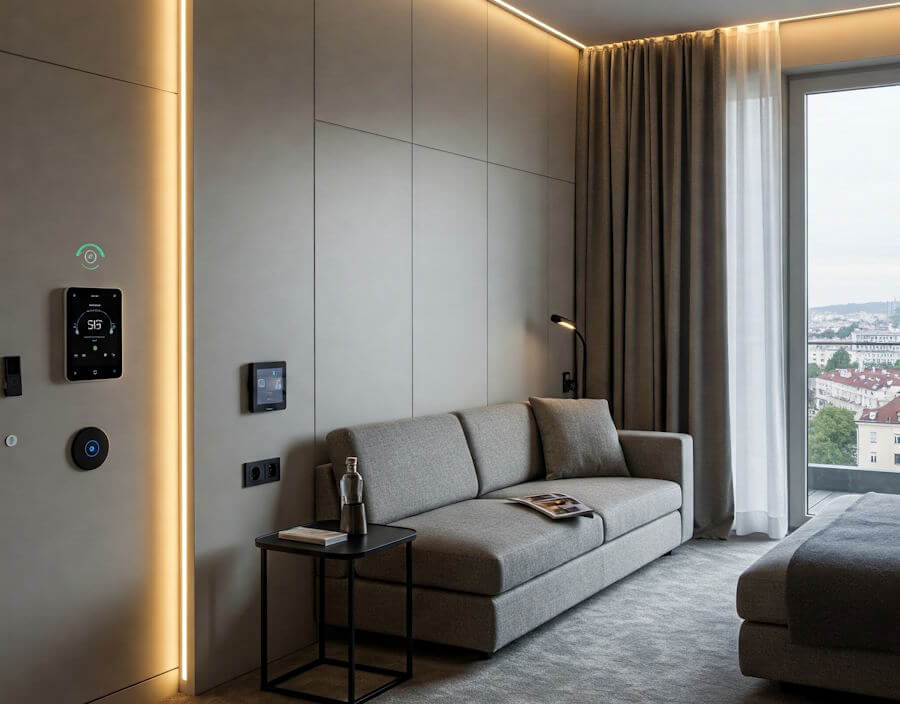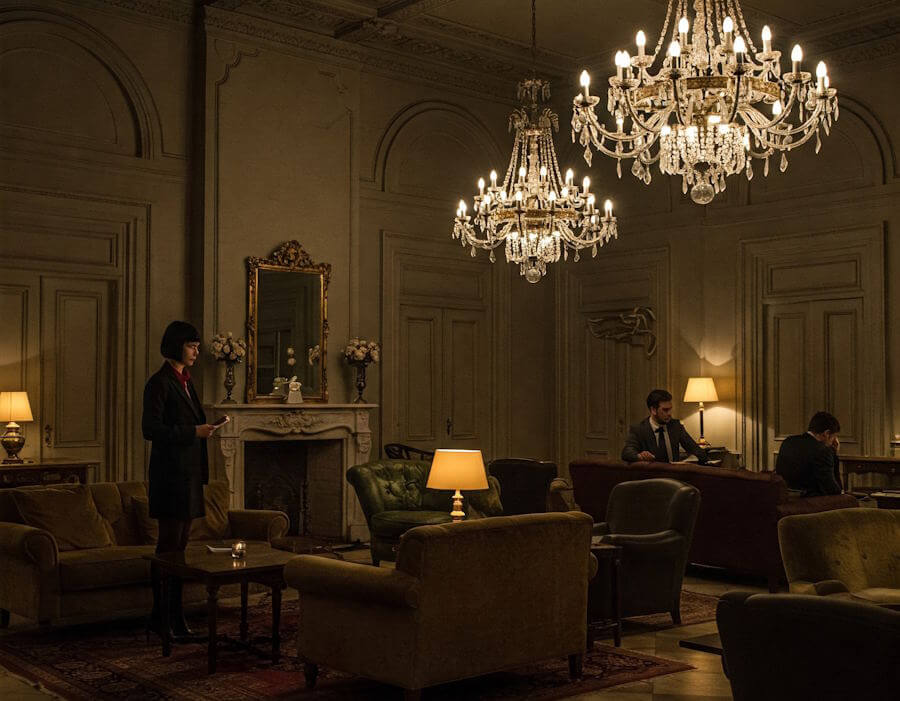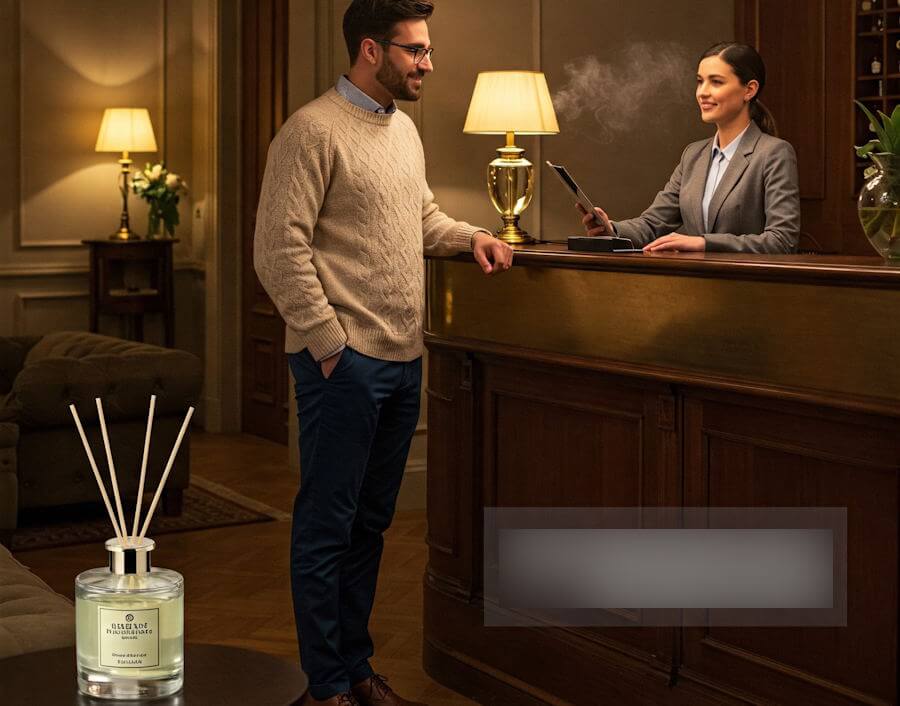Introduction to Smart Rooms
Smart rooms represent a transformative approach to hospitality within boutique hotels, leveraging technology to significantly enhance the guest experience. These innovative spaces integrate advanced technologies into room design, allowing for increased convenience, personalized experiences, and unmatched comfort. By incorporating elements such as smart lighting, automated climate control, and voice-activated systems, boutique hotels are redefining traditional hospitality practices to meet the evolving expectations of modern travelers.
At their core, smart rooms utilize interconnected devices that can be controlled through mobile applications or centralized systems, enabling guests to customize their environment with ease. For instance, guests can adjust the room’s temperature, lighting, and entertainment systems at the touch of a button or through voice commands, creating a tailored atmosphere that caters to individual preferences. Such flexibility enhances not only comfort but also the overall hotel experience, as guests can personalize their stay significantly.
The integration of technology in smart rooms goes beyond mere aesthetics; it also emphasizes security and efficiency. Many boutique hotels have adopted features such as keyless entry systems and advanced surveillance that ensure guests feel secure throughout their stay. Furthermore, energy-saving devices help hotels operate sustainably, reducing their environmental impact while maintaining high standards of guest service.
As the demand for high-tech accommodations continues to grow, the adoption of smart room technology in boutique stays signals a shift towards a more thoughtful and responsive hospitality industry. The fusion of innovative design and smart technology creates an engaging environment that is both functional and enjoyable for guests. Embracing smart rooms is not simply about keeping pace with trends; it reflects an understanding of contemporary needs for comfort, convenience, and personalized service in the competitive arena of boutique hotels.
Rise of Boutique Hotels
In recent years, the boutique hotel sector has experienced a significant surge in popularity, largely driven by the evolving preferences of today’s travelers. Unlike traditional hotels, boutique accommodations typically offer a distinctive charm, characterized by their personalized service and unique design. Each boutique hotel tends to possess its own identity, often reflecting local culture and artistry, thereby crafting a more intimate and memorable experience for guests.
This distinctive approach is particularly appealing to travelers seeking alternatives to standardized hotel experiences. The boutique hotel environment fosters a sense of individuality and exclusivity that cannot typically be found in larger chains. Additionally, these establishments cater to a diverse array of tastes, often incorporating local materials and artistic elements into their design, ensuring a visually captivating atmosphere.
Alongside their unique aesthetic, boutique hotels are also adapting to the demands of technology-savvy guests. Modern amenities, including high-speed internet, smart room controls, and personalized room settings, are becoming standards within the industry. These features resonate well with the contemporary traveler who values comfort and convenience. Many boutique hotels employ innovative technologies that enhance guest interactions, such as mobile check-ins and personalized recommendations based on individual preferences. This melding of modern technology with high-quality service creates a seamless experience that appeals to a wide demographic.
The trend toward boutique hotels indicates a broader shift in consumer behavior, as travelers now prioritize authentic experiences over mere luxury. In response to this growing demand, boutique hotels are continuously evolving to incorporate feedback and adapt their offerings, ensuring they remain relevant in the competitive hospitality landscape. Ultimately, the rise of boutique hotels reflects a transformation in how accommodations are perceived, emphasizing the importance of individuality, technology, and customer-centric services.
Key Technologies in Smart Rooms
The emergence of smart rooms in boutique hotels has revolutionized the hospitality industry, offering enhanced comfort and convenience for guests. One of the primary technologies underpinning smart rooms is the Internet of Things (IoT) devices, which seamlessly connect various elements within the room to create a unified experience. These interconnected devices allow guests to control everything from lighting to temperature through a single interface, typically a smartphone or a dedicated tablet provided by the hotel.
Smart TVs are another significant feature found in modern boutique accommodations. These devices not only provide entertainment options but also allow guests to access streaming services and interact with the hotel’s information system. By integrating smart TVs with IoT technology, guests can customize their viewing experience and access hotel services without needing to navigate separate systems.
Automated lighting is a crucial component of smart rooms, giving guests the ability to adjust the ambiance based on their preferences. Whether it is soft lighting for relaxation or bright lights for productivity, these systems can be programmed or controlled intuitively, contributing to an inviting atmosphere. Enhanced safety and security are also key considerations, made possible with keyless entry systems. These systems utilize smartphone technology or key fobs, eliminating the need for traditional keys and providing an additional layer of convenience.
Smart thermostats represent yet another innovation found in smart rooms. Equipped with learning algorithms, these devices automatically adjust the temperature based on personal preferences and occupancy patterns. Such technology not only enhances guest comfort but also promotes energy efficiency, aligning with the growing emphasis on sustainability within the hospitality sector. Together, these technologies create a cohesive ecosystem that enhances the overall guest experience, making boutique stays increasingly appealing to tech-savvy travelers.
Enhanced Guest Experience Through Personalization
The advent of smart technologies in boutique hotels has transformed the way guests interact with their accommodations, greatly enhancing their overall experience through personalization. In an era where consumers value tailored service, boutique hotels are leveraging smart room features to cater to individual preferences, thereby increasing guest satisfaction. By utilizing smart systems, hotels can create an environment that resonates with the personal tastes and desires of each visitor.
One of the prominent features that facilitate personalization is the ability to customize room settings. With just a touch on a tablet or smartphone, guests can adjust the room temperature, lighting, and even the fragrance to suit their mood and comfort. This level of control not only provides comfort but also fosters an atmosphere of relaxation, essential for a memorable stay. For instance, guests may prefer bright, energizing lights during the day but opt for dim, warm tones in the evening to unwind. Such options capitalize on smart lighting technology that can be easily tailored to fit personal preferences.
In addition to room settings, mood lighting plays a crucial role in enhancing the ambiance of a boutique hotel. With the integration of sophisticated lighting systems, hotels can offer various lighting scenarios that align with guests’ activities or emotional states, helping them to create their desired atmosphere. Furthermore, smart entertainment options allow guests to access their favorite streaming services and personalize their viewing experience effortlessly. This flexibility not only enhances leisure time but also fosters a sense of familiarity for visitors who may be far from home.
As boutique hotels continue to embrace these smart technologies, the ability to deliver personalized services becomes a pivotal element in meeting and exceeding guest expectations. By focusing on individual preferences from the moment guests arrive, these establishments not only enhance satisfaction but also cultivate loyalty, ensuring that guests return time and again to experience the innovation of personalized hospitality.
Sustainability in Smart Room Technology
The integration of smart room technology in boutique stays represents a significant advancement towards environmental sustainability. These innovations not only enhance guest experience but also contribute to energy efficiency, reduced water consumption, and a lower carbon footprint. Many hotels are now adopting automated systems to manage lighting, heating, and cooling based on occupancy and guest preferences. For instance, occupancy sensors can automatically adjust room temperature and lighting when guests enter or leave, ensuring that energy is not wasted during unoccupied periods.
Additionally, smart room technologies often come equipped with advanced energy management systems. These systems can learn usage patterns and optimize energy consumption accordingly. For example, smart thermostats enable guests to program their heating and cooling preferences, reducing the reliance on conventional energy systems. By utilizing renewable energy sources, such as solar panels, boutique stays can further minimize their environmental impact, making them more appealing to eco-conscious travelers.
Water conservation is another critical aspect of sustainability that smart room technology addresses. Innovative solutions, such as low-flow showerheads and smart toilets, are becoming common in modern accommodations. These fixtures help reduce water usage without compromising comfort. Furthermore, digital monitoring systems can track water consumption patterns, enabling hotels to identify areas for improvement and implement strategies to minimize waste.
By employing smart technology in their rooms, boutique hotels can not only create a more comfortable and personalized experience for guests but also significantly enhance their sustainability efforts. This commitment to the environment can attract a growing demographic of travelers who prioritize eco-friendly practices in their choice of accommodation. Smart room technology is therefore not merely a luxury; it is increasingly becoming a vital element in the hospitality industry’s pursuit of sustainability.
Security and Privacy Considerations
The advent of smart rooms in boutique hotels has ushered in a new era of convenience and personalization for guests. However, with the integration of advanced technology comes critical consideration for security and privacy. The connected devices that enhance the guest experience, such as smart thermostats, lighting systems, and in-room assistants, can also present potential vulnerabilities that must be addressed.
One of the foremost risks associated with smart rooms is the potential for data breaches. These breaches can occur when hackers gain unauthorized access to the network, compromising sensitive information such as guest identities, payment details, and personal preferences. To mitigate these risks, boutique hotels should implement robust cybersecurity measures, including data encryption, secure authentication protocols, and regular software updates. Ensuring that all connected devices are secured against potential threats is essential for safeguarding guest information.
In addition to technical safeguards, transparency plays a vital role in building trust with guests regarding their information. Boutique hotels should provide clear and comprehensive privacy policies that outline how guest data is collected, used, and stored. Guests should be informed about the types of data collected by smart technology and offered the option to opt-out of data sharing where feasible. This level of transparency not only enhances guest confidence but also reinforces the establishment’s commitment to respecting privacy.
Ultimately, as boutique hotels embrace smart technology, they must strike a balance between innovation and the protection of guest privacy. By being proactive in addressing security vulnerabilities and maintaining transparency, boutique hotels can create a secure, trustworthy environment that enhances the overall guest experience, while ensuring that privacy remains a paramount consideration.
Future Trends in Boutique Hotel Technology
As the hospitality industry continues to evolve, boutique hotels are increasingly adopting innovative technologies to enhance guest experiences. One of the most prominent trends on the horizon is the integration of voice-activated systems. These tools empower guests to control various room functions, from lighting to temperature, simply by using their voice. This accessibility not only provides convenience but also aligns with the growing expectation for personalized service in boutique accommodations.
Another significant advancement is the rise of artificial intelligence (AI)-driven services. These technologies are expected to streamline operations and improve customer interactions, enabling hotels to offer tailored recommendations based on guests’ preferences. For instance, AI chatbots can assist with inquiries, provide local recommendations, and handle bookings, all of which contribute to a seamless and efficient guest experience. This level of personalized interaction exemplifies how boutique hotels are positioning themselves as forward-thinking establishments.
Augmented reality (AR) presents another transformative technology that boutique hotels can leverage to enhance guest engagement. By offering immersive experiences, hotels can elevate their amenities and services. For example, a hotel might employ AR to provide virtual tours of the local area or interactive elements within the hotel itself, enabling guests to discover historical features or art installations via their smartphones. Such innovative uses of AR not only capture guests’ attention but also create memorable experiences that can distinguish a boutique stay from standard accommodations.
In summation, the future of technology in boutique hotels is poised for significant transformation. By embracing voice activation, AI-driven services, and augmented reality experiences, boutique hotels will be able to enhance their offerings and create unique, personalized environments that cater to the evolving expectations of modern travelers. This forward-thinking approach is essential for staying competitive in the ever-changing landscape of the hospitality industry.
Innovative Boutique Hotels Utilizing Smart Room Technology
In recent years, several boutique hotels have emerged as leaders in the integration of smart room technology, showcasing how innovative solutions can enhance guest experiences. One prominent example is Hotel Zetta in San Francisco, which features advanced automation systems that allow guests to control the lighting, temperature, and entertainment options via their smartphones. This level of personalization not only ensures comfort but also significantly improves energy efficiency, aligning with contemporary sustainability practices.
Another noteworthy case is The Henry Hotel in Manila, which offers a unique blend of urban charm and smart technology. Guests are welcomed with an interactive room tablet that provides easy access to room services, local dining recommendations, and even smart home features such as automated curtains and ambient lighting. Such technology integration has received positive feedback from guests, who appreciate the seamless and intuitive interactions with their surroundings.
Across the Atlantic, we find the Hotel Amara in Cyprus implementing state-of-the-art voice recognition technology. Guests are invited to use voice commands to adjust their room settings, request services, and gather information about hotel amenities. This not only enhances their stay but also caters to a growing demand for hands-free convenience. Feedback from visitors indicates that these smart features contribute significantly to the overall satisfaction, creating a memorable stay.
In London, the Hoxton Hotel has embraced smart technology through its ‘digital concierge’ service, allowing guests to book activities and services directly from their personal devices. These innovations have elevated hospitality standards by providing guests with tailored experiences and real-time information. As boutique hotels continue to adopt and adapt smart room technologies, it is clear that these innovations are not merely trends but rather essential elements of modern hospitality, meeting the evolving preferences of travelers.
Conclusion: The Evolution of Boutique Stays
As the hospitality landscape continues to evolve, the integration of smart room technology in boutique hotels has emerged as a defining trend that shapes guest experiences. This advancement signifies a move toward enhanced comfort, personalized service, and improved operational efficiencies, aligning with the growing expectations of modern travelers. The ability to control room environments, access tailored amenities, and receive real-time information—and all through simple interfaces—has become pivotal in the boutique hotel segment.
Furthermore, adopting such technologies allows boutique properties to distinguish themselves in a competitive marketplace. Guests today seek more than just a place to stay; they desire an experience that encompasses convenience and connectivity. By leveraging advanced solutions like smart lighting, automated climate control, and voice-activated services, boutique hotels can offer an atmosphere that not only meets but exceeds these expectations. This highlights the importance of keeping pace with technological advancements to cultivate guest loyalty and satisfaction.
The implications of embracing smart room technology within boutique stays extend beyond immediate guest interactions. Hotels that invest in innovative technological solutions are better positioned for future growth, as they can adapt to evolving trends and consumer preferences. Moreover, these implementations often contribute to sustainable practices, reducing energy consumption and waste, thus appealing to eco-conscious travelers.
In conclusion, the future of boutique stays in the hospitality industry undoubtedly hinges upon the adoption of smart room technology. As hotel owners consider integrating these enhancements, they must remember that the journey involves a commitment to continuous innovation. By creating an environment where technology enriches the guest experience, boutique hotels can ensure they remain not only relevant but also leaders in a rapidly transforming industry.




